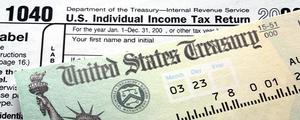Story Highlights
- 71% of Americans now approve of labor unions
- 40% of union members say their membership is "extremely important"
- Employee engagement higher among nonunion workers
WASHINGTON, D.C. -- Seventy-one percent of Americans now approve of labor unions. Although statistically similar to last year's 68%, it is up from 64% before the pandemic and is the highest Gallup has recorded on this measure since 1965.
These data are from Gallup's annual Work and Education survey, collected Aug. 1-23.
The latest approval figure comes amid a burst of 2022 union victories across the country, with high-profile successes at major American corporations such as Amazon and Starbucks. The National Labor Relations Board reported a 57% increase in union election petitions filed during the first six months of fiscal year 2021.
Support for labor unions was highest in the 1950s, when three in four Americans said they approved. Support only dipped below the 50% mark once, in 2009, but has improved in the 13 years since and now sits at a level last seen nearly 60 years ago.
About One in Six Americans Live in a Union Household
Sixteen percent of Americans live in a household where at least one resident is a union member. This includes U.S. adults who report that they themselves are a union member (6%), those who say someone else in their home is a member (7%), and those who say they and someone else in their household belong to unions (3%).
The net 16% union household figure is within the 14% to 21% range Gallup has recorded since 2001.
Gallup also polled union members and nonunion members June 13-23 in a separate online Gallup Panel survey about union membership.
Membership is highest among front-line and production workers, of whom one in five (20%) are union members.
About one in 10 workers in healthcare and social assistance (13%), white-collar positions (11%), and administrative and clerical roles (10%) are union members.
Workers in managerial roles (6%) are the least likely to be members of unions.
Two in Five Union Members Say Membership Is 'Extremely Important'
Among union members, two in five (40%) rate their membership as "extremely important," or as a 5 on a five-point scale, with another 28% rating it a 4. In contrast, just one in 10 rate it as "not important at all," a rating of 1 on the scale.
Union members were also asked which of various potential reasons for joining a union are most important to them. Their top answers are better pay and benefits (65%) and employee rights and representation (57%).
More than a third of union members cite job security (42%) and better pension and retirement benefits (34%) as reasons for joining a labor union. Meanwhile, about one in four list improving the work environment (25%) and fairness and equality at work (23%).
Few members select health and safety (9%) or unions having a positive effect on the country (5%) as reasons to join.
Most Nonunion Workers Disinterested in Unionizing
While many union members truly value their participation, those who are not members don't generally feel they are missing out.
A majority of nonunion workers in the U.S. (58%) say they are "not interested at all" in joining a union. About one in 10 say they are "extremely interested" (11%).
Engagement Higher Among Nonunion Workers, but Flight Risk Is Greater
Union members' attachment to their union does not carry over to their jobs. Rather, the data show that workers who are union members are less engaged at work (27%) than are nonunion members (33%). Gallup defines employee engagement as the involvement in and enthusiasm of employees in their work and workplace. The engagement gap between union and nonunion workers could be significant to employers because highly engaged employees tend to be substantially more productive, less likely to leave and safer at work than their less engaged counterparts, and they tend to have better personal wellbeing.
On the flip side, about one in four union members (24%) are actively disengaged at work, compared with 17% of nonunion workers. Actively disengaged employees are not just unhappy at work -- they tend to be resentful that their workplace needs aren't being met and often act out their unhappiness.
Union workers are less of a flight risk for employers, however; they are less likely to be actively looking for a new job (43%) than are nonunion workers (50%).
Bottom Line
The low unemployment rate that developed during the pandemic altered the balance of power between employers and employees, creating an environment fostering union membership that has resulted in the formation of unions at several high-profile companies. While already on an upswing, public approval of unions has only increased further during the pandemic and is now at a level not seen in nearly six decades.
Many union members greatly value their membership, with most naming benefits and employee rights as key reasons for joining. But for all the membership benefits they enjoy, this doesn't necessarily translate to employee engagement among unionized workers. It is not clear, however, whether lower engagement among unionized employees is a result of dissatisfaction they harbored before joining a union, or if joining a union foments tension between workers and their employers.
It is a challenging environment for employers -- and many are pushing back against unionization efforts despite unions' improved public image. While most nonunion workers are uninterested in joining a union, an increase in unionization efforts is still taking place, and employers of these unionized workers will need to find ways to improve their engagement.
To stay up to date with the latest Gallup News insights and updates, follow us on Twitter.
Learn more about how the Gallup Poll Social Series works.
Learn more about how the Gallup Panel works.
View complete question responses and trends (PDF download).





